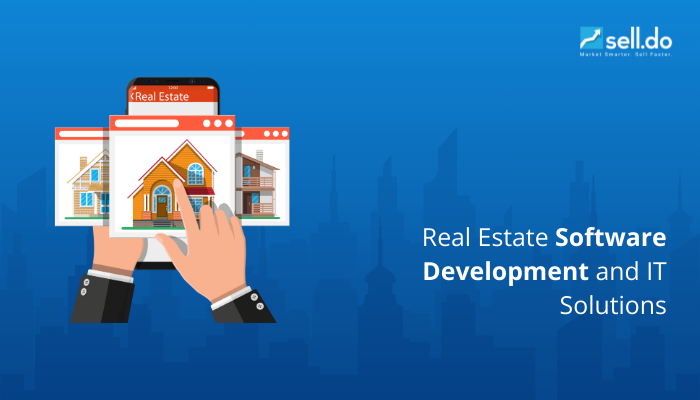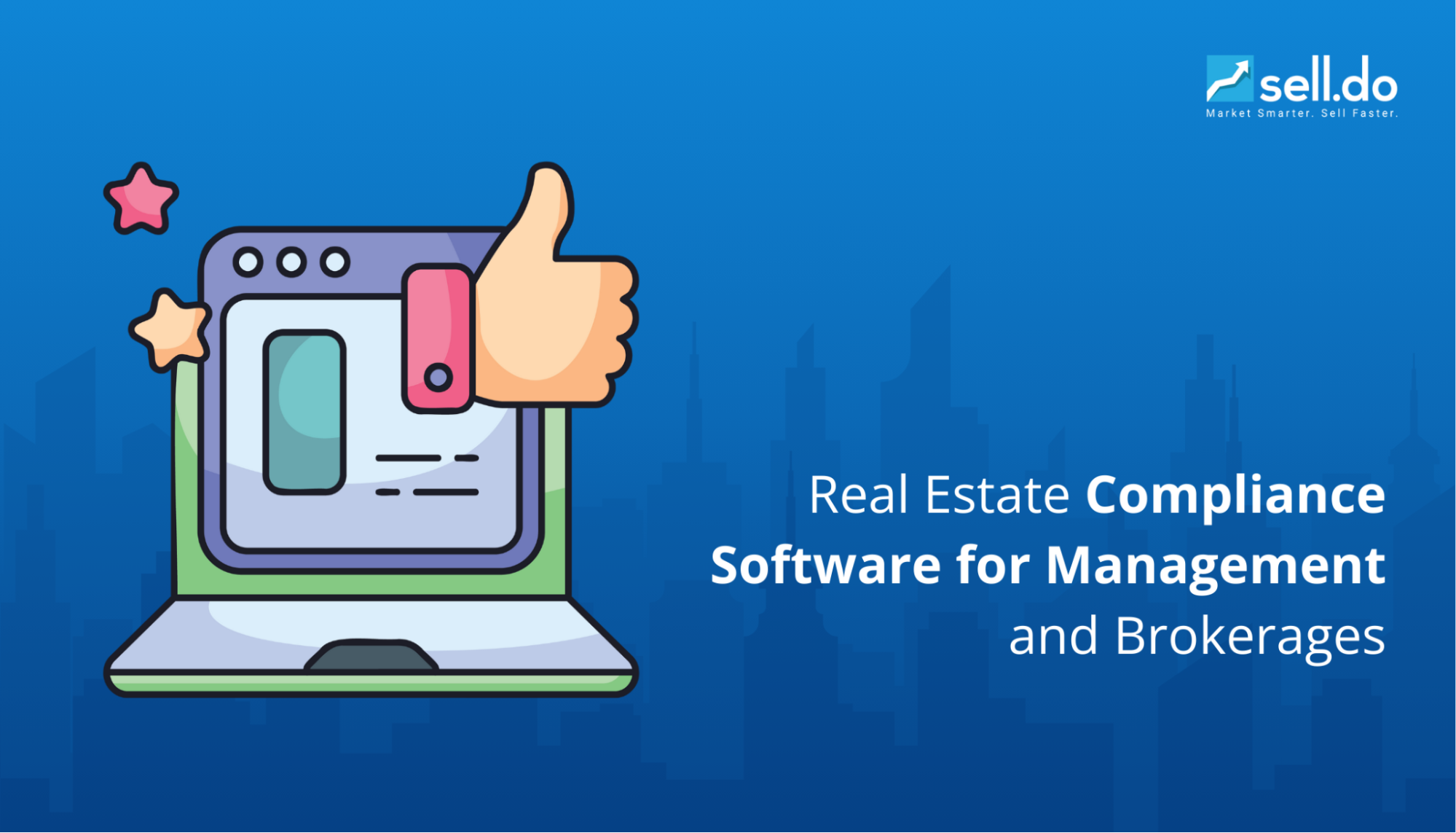In recent years, the rate of innovation in real estate has been continuous and rapid. This is because the real estate industry has evolved to be easily changed, enhanced and impacted by new technologies. IoT is one such technology that has become an integral part of this evolving revolution.
How Does IoT Help The Industry?
There are a lot of potential benefits that this technology can bring to the real estate industry. For example, IoT in real estate can help to improve efficiency by tracking property transactions and related data. It can also help to reduce costs by automating systems such as generators or HVAC systems.
Furthermore, it can create new opportunities by providing more insights into consumer behaviour and preferences. In short, even IoT implemented through a real estate CRM carries the potential to change how businesses operate in multiple ways.
As the IoT continues to grow in popularity and relevance, it's no surprise that real estate businesses are taking advantage of its many benefits. By using IoT in various ways, they are improving their operations and creating new growth opportunities.
This blog will explore the ever-increasing role of IoT in real estate and the key benefits that businesses can expect.
-
Quicker Connectivity and Maximum Automation:
![Virtual property tours]()
Internet of Things in real estate can help convey information more quickly and help keep practices running smoothly. It also offers transparency for buyers, sellers, and other property management team members. A connected IoT commercial real estate platform can also track the activity and inform stakeholders in real time about the development, be it a standalone project, a project in construction, or a connected smart device.
The potential applications for IoT in real estate are endless, but one thing is for sure: it will make business operations quicker, smoother, and more efficient.
-
Smart Spaces Equipped with Smart Devices:
![Virtual visualizing and staging of properties]()
IoT in real estate can be an essential catalyst for the transformation of real estate businesses in the future. By improving efficiency and communication in real estate offices, IoT can revolutionize the way transactions are conducted.
Land surveyors, property managers, and brokers can use IoT for real estate to understand better how properties are occupied and used. This can help guide decisions about repairs or modifications and future property acquisitions. 2D mapping and surveying tools can also be used to determine potential development sites or locations for renovations.
In this way, IoT can help optimize real estate operations and save time and money for businesses involved and consumers who may benefit from better, informed decision-making. Ultimately, IoT for real estate can improve customer experience by delivering solutions that make life easier for those working and those using it.
-
Less Energy Consumption:
![Automation In Real Estate]()
One critical benefit of IoT to the real estate industry is its potential to reduce energy consumption. Already, some buildings are using sensors and connected devices to detect when offices are not in use and turn off lights and air conditioning units accordingly. By using IoT technology to manage building operations, businesses can save a considerable amount of energy, which can, in turn, improve their bottom line.
In addition to reducing energy consumption, IoT in commercial real estate can help businesses optimize their operations by identifying problems early on. For example, sensors could monitor traffic levels inside a building or the weather outside. If there is an unexpected rainstorm or high demand for parking, this information could be used to adjust staffing and operation schedules accordingly.
Overall, the Internet of Things in real estate has the potential to transform the industry by providing businesses with solutions to various issues related to energy efficiency and operational efficiency. By implementing these solutions, businesses can become more sustainable and ensure long-term success.
-
Augmented Reality & Virtual Reality:
![Automation In Real Estate]()
AR (Augmented Reality) and VR (Virtual Reality) are becoming increasingly popular among real estate businesses to provide a more immersive experience for buyers and sellers. Using these technologies, businesses can create more engaging and interactive online experiences that can help sell their properties faster and increase customer satisfaction. One example of how AR and VR can be used in real estate is by creating virtual tours of properties that potential buyers can access.
With AR, businesses can put digital objects into the physical world to create realistic 3D renderings of buildings or spaces. VR helps people to enter a simulated environment where they feel as if they are there. This technology can create immersive experiences that allow buyers to get a feel for the layout of a property, the size and height of fixtures and furnishings, and see views that couldn't otherwise be experienced.
By using AR and VR through IoT for real estate, businesses can create truly unique and engaging experiences for their customers that will help.
-
Mobile Apps to Ease the Operations:
![Automation In Real Estate]()
By using connected mobile apps, real estate agents can communicate with customers and manage their properties more efficiently. In addition to improving customer service, IoT can also help agents find new properties. By tracking property data, apps can notify agents when a property is available for sale or rent. This information can help agents make more informed decisions about investment properties.
- Real estate agents can use mobile apps to keep track of all the properties they are working on to make better decisions about where to allocate their time and resources.
- Property management companies can use smart home devices to monitor and collect data about property maintenance, occupancy rates, etc.
- Property sellers can use IoT devices to track inventory levels, sales trends, and other valuable information about their properties.
As the use of IoT in real estate continues to grow in the real estate industry, mobile apps will continue to lead the way.
-
Make Informed Decisions:
![Automation In Real Estate]()
One of the most noticeable changes in the real estate industry over the past decade has been the rise of technology. With more consumers becoming familiar with digital options, real estate businesses have followed suit and utilized newer technologies to market and sell properties.
IoT can connect buildings, systems and data in a way no other technology can. This allows for more comprehensive and accurate analytics that help stakeholders make informed decisions about their properties, populations and more.
Internet of Things commercial real estate systems can automate many routine tasks involved in running a property – from maintenance to performance efforts – freeing up time for stakeholders to focus on higher-value activities. Some companies are already using IoT to help manage entire communities of properties.
Connected devices inside and outside of the property can monitor things like energy use, weather conditions, noise levels and more. This data can improve the overall quality of life for stakeholders involved by identifying potential problems and making adjustments accordingly.
In Conclusion:
The future of real estate looks bright. Not only is the market ripe for growth, but IoT can transform how businesses operate in the industry. Using technology to collect data and create insights, IoT, coupled with real estate CRM software, can help real estate developers & brokers to manage their portfolios more effectively, optimize marketing campaigns, and even keep track of repairs and maintenance. With this level of automation, there’s no stopping the real estate revolution – it’s just a matter of time before IoT in real estate shows its prowess and forever changes the way we do business!



















Leave a comment
Comments (0)
Be the first one to comment.